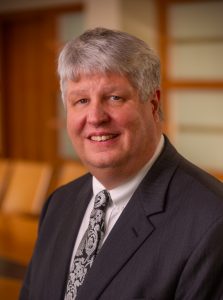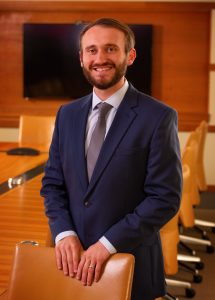The Wisconsin Fair Dealership Law Enters Its 50th Year: Contracting Around the WFDL
Contracting around the Wisconsin Fair Dealership Law
As explained in an earlier blog post defining a dealership under the Wisconsin Fair Dealership Law, the existence of a “contract or agreement, either expressed or implied, whether oral or written” is necessary for a relationship to be protected by the Wisconsin Fair Dealership Law. In most business relationships, a written, expressed contract serves as the foundation for the parties’ dealings, setting forth the parties’ respective rights and responsibilities. Reflecting Wisconsin’s longstanding commitment to the freedom of contract, more often than not, Wisconsin courts will hold commercial parties to the plain terms of their agreement. It follows that if two parties agree that the WFDL does not apply to their relationship, it’s reasonable for one to assume that such a provision would preclude one of the parties from later seeking protection under the statute. However, where a dealer is protected under the WFDL, a contract cannot limit the protections afforded by the statute.
At root, the WFDL protects relationships, not just contracts. See Jungbluth v. Hometown, Inc., 201 Wis. 2d 320, 329, 548 N.W.2d 519 (1996). To that end, the statute explicitly provides that a party cannot contract around the law’s strictures and any attempt to do so is void. Wis. Stat. § 135.025(3). The most obvious examples of a clause contrary to the WFDL are a provision disclaiming a dealership relationship or directing that the law of a different state would apply to any dispute arising from the contract. Other common examples include terms identifying when termination is appropriate, whether damages are limited in any way, and the process to repurchase outstanding inventory. A protected dealer is afforded good cause, proper notice, and an opportunity to cure, even if the parties’ agreement states otherwise, and a contract cannot limit a protected dealer’s remedies under the WFDL. That said, other aspects of a particular contract will be enforceable to the extent that they do not infringe on the protection afforded by the statute.
Recent case law has revealed that contracts that include forum-selection clauses and arbitration provisions complicate this analysis. Courts almost uniformly enforce forum-selection clauses (see Atl. Marine Const. Co. v. U.S. Dist. Ct. for W. Dist. of Texas, 571 U.S. 49 (2013)) and have rejected arguments that forum-selection clauses cannot apply in the WFDL context. But, upon transfer, there is simply no guarantee that the transferee court will find that Wisconsin law governs the parties’ dealings; it is entirely possible that the transferee court will apply the law of a state other than Wisconsin.
A similar risk exists in arbitration, where judicial review is limited. Arbitration is an increasingly popular form of dispute resolution between grantors and dealers. While the WFDL specifically preserves the enforceability of arbitration clauses in dealership agreements on the condition that the dealer is afforded protections comparable to those in the statute, the Federal Arbitration Act preempts that provision entirely. Wis. Stat. § 135.05. Thus, where an arbitration clause exists, the merits of the WFDL dispute are likely to be resolved in arbitration.
The upshot is that the WFDL will always override a direct attempt by the parties to contract around its protections, but forum-selection clauses and arbitration provisions both introduce uncertainty. For that reason, it is important for parties to consult with experienced counsel at every stage of the parties’ relationship. Decisions made from the onset of the parties’ relationship may have significant impact on the applicability of the WFDL in litigation. Stafford Rosenbaum LLP’s Dealership and Franchise team draws from a pool of knowledgeable and experienced transactional and litigation attorneys to offer comprehensive coverage for dealers, grantors, franchisees, franchisors, distributors, and manufacturers operating in a diverse set of industries.
Stafford Rosenbaum LLP is a full-service law firm with two convenient office locations in Madison and Milwaukee, Wisconsin. Over 140 years of dedication to businesses, governments, nonprofits, and individuals has proven that effective client communication continues to be the heart of our practice.





